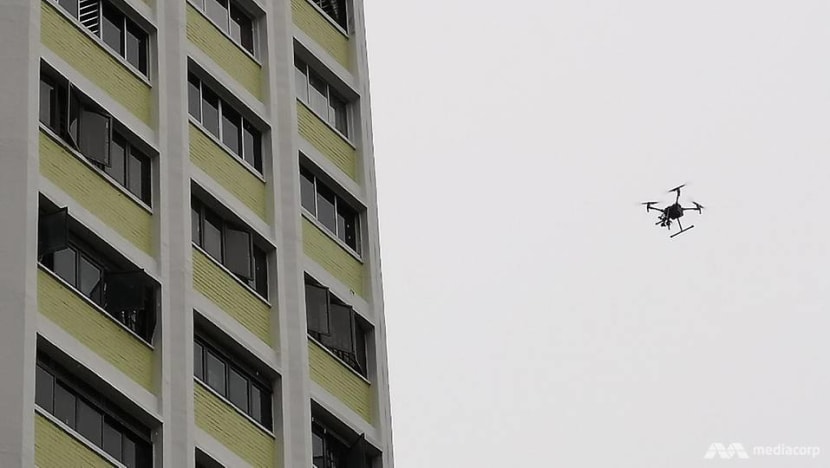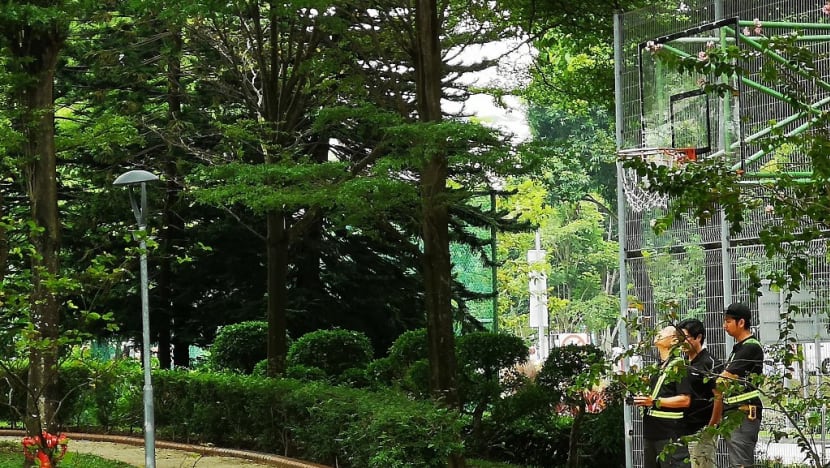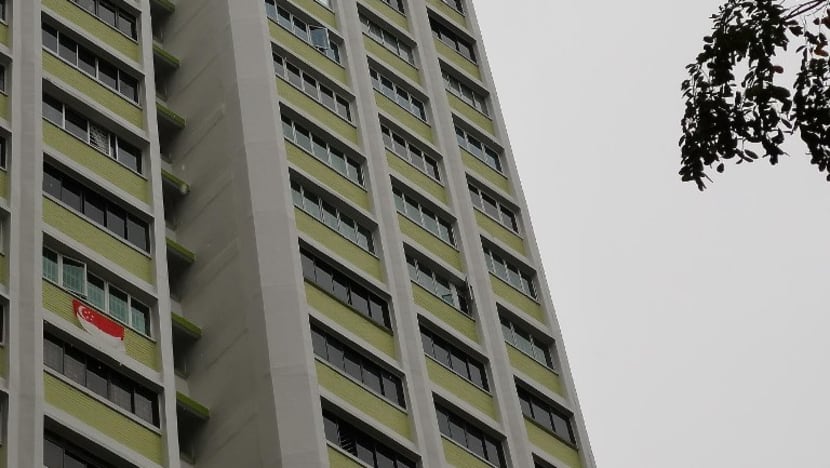Heady days: Use of drones to detect defects on HDB blocks takes flight
The small-scale, one-week pilot at the end of July saw the Housing and Development Board’s drone operator inspect four public housing blocks in Jurong East.

A drone being used to capture images of a HDB building in Singapore to detect defects.
SINGAPORE: It’s a bright, sunny day and you’re just stretching out to open your windows to let the warm rays into the house when you see a drone staring right back at you.
Some residents, living in one of four Housing and Development Board (HDB) blocks in Jurong East, could have experienced that recently.
That is because the HDB had embarked on a small-scale, week-long trial late in July to see if drones are able to complement building inspection efforts, particularly for hard to reach places or those that may pose more risk.
An HDB spokesperson told Channel NewsAsia that the agency and town councils carry out such regular inspections of public housing facades to make sure they are in good condition. These, the spokesperson said, are typically carried out by workers using gondolas.
That said, the intention of the drone pilot for the four HDB blocks was to “carry out more comprehensive inspections, especially at areas which are less accessible to workers using gondolas”, the official said in an email.
This comes even as building owners look set to come under greater pressure to have a regular inspection regime. Specifically, buildings taller than 13 metres and older than 20 years will have to be inspected every seven years, said then-Second Minister for National Development Desmond Lee.
The drone inspections were carried out between Jul 26 and Aug 2, during a two-hour window in the morning and afternoon, HDB said.
When Channel NewsAsia visited one of the blocks and observed the inspection process earlier this month, it was apparent that safety was topmost in the minds of the outsourced drone operators.

In a Channel NewsAsia report last month, Mr Shaun Koo, co-founder and chief technical officer of H3 Zoom.AI, said: “The solution aims to basically reduce fatalities for work-at-height (situations), and also better manage the manpower crunch in Singapore.
“It is (also) more cost effective to have this solution deployed than the manual inspection process,” Mr Koo added.
However, while the system is able to pick out defects on concrete surfaces such as water marks, wall cracks and peeling paints, it is not programmed yet to detect rust or corrosion, that report noted.
PROTECTING RESIDENTS’ PRIVACY
In the circular, HDB also informed residents that as part of the inspection the drones will take images of different parts of the building facade and, if any images of residents were captured during the inspection, these images “will be treated with a masking software that will blur out the details”.

Asked to elaborate on this, the HDB spokesperson said the agency has a “strict contractual agreement” with HUS that the drones are to capture only images of the building facade. HDB and the town council will use only the processed images with residents’ images masked out, the spokesperson added.
“Also under the contractual agreement with HDB, HUS is not permitted to publish, share, reproduce or use captured footage for any purpose beyond the pilot without HDB’s prior consent,” the spokesperson pointed out.
A provision shop owner at one of the four HDB blocks, Mr Sim, told Channel NewsAsia he witnessed the drone being flown during the building inspection.
He had no issues with the use and concerns over privacy - "I'm a man, they want to take pictures then take lor," Mr Sim said in Mandarin.
But he recounted how some female residents had complained to him about how drones should not be used and concerns over their privacy, especially if they were alone at home.
Another resident, Hervy, didn't have a negative reaction to the use of drones either.
"I don't mind, since I'm not at home most of the time. My parents are out working too," he said.
He pointed out that different people have different thresholds for such use of drones, but said he has no issues with the use as long as people's privacy is retained.
Yet, even as the finer details of the use of drones to inspect public housing will no doubt be looked at by HDB, the week-long pilot was a historic moment for some in the drone community.
Performance Rotors, the drone operator contracted by HUS to do the on-site inspection, was particularly effusive.
In a Facebook post on Jul 26 - the first day of the pilot - the company wrote: “Gentleman, today, you are making history.
“Today, you become the pioneer of Singapore’s drone industry, doing what none of the older, bigger drone companies have done. I feel so proud, and you should too.”















